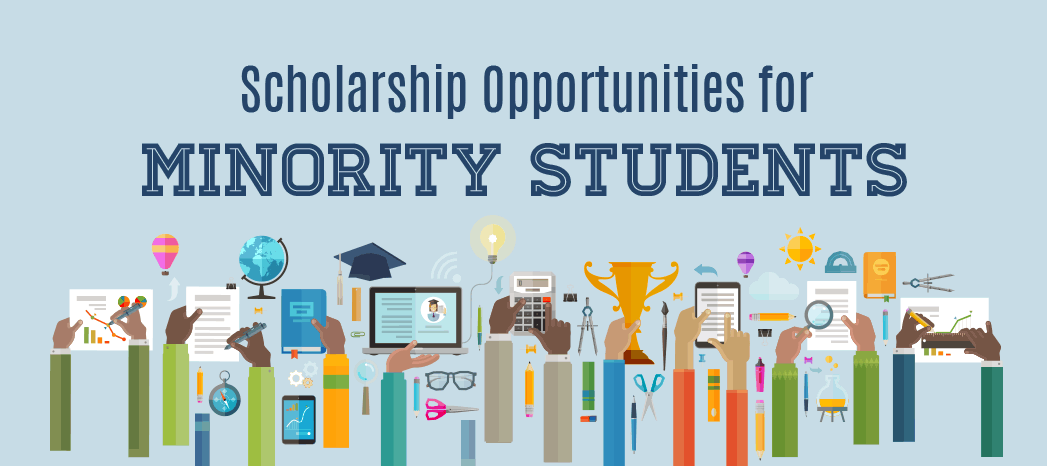The overall cost of college education has gone up over the years, and it has become difficult for many to afford it. College education doesn't only comprise of tuition fees, but also room and board, transportation, food, parking, lab fees… the list goes on! This is why scholarship opportunities are so important, especially for minority students. While scholarships may not cover the entire cost of school, it can definitely help reduce it. The great thing about scholarship funds is that unlike loans, they do not need to be repaid. State governments, Fortune 500s, and local advocacy groups all provide a plethora of scholarship opportunities for students with different backgrounds, goals, and personal characteristics. The aim is that more students in general are able to afford college and in turn, create a more diverse workforce after graduation.
What the Experts Say




A Closer Look: Statistics
-
Caucasian students get more than 75% of all institutional merit-based scholarship and grant funding, despite the fact that they represent less than 3/4 of the student population.
-
Caucasian students are 40% more likely to win private scholarships than minorities. In fact, minorities receive only about 28% of all scholarships.
-
In 2000, college tuition and fees cost $3,508 to attend a public 4-year university. The cost jumped to $9,648 in 2016-17, an increase of 275%. The price of college has risen more than double the rate of inflation!
-
Hispanics, compared to other minorities, are still lagging behind other groups in obtaining a college degree. As of 2014, only 15% of Hispanics ages 25-29 have a Bachelor's degree or higher. This is partly due to the fact that many do not have the financial means to afford it.
-
35% of Native American youth grow up in impoverishment. Life without a college degree often doesn't help the situation as it leads to lost opportunity. To put things into perspective, only 13% of Native Americans have a college degree while 28% of Americans finish college. While more than 60% of U.S. high school students graduate and attend college, only 17% of American Indian students are able to pursue higher education.
Who is Considered a Minority?
"Minority" refers to those who are marginalized from the perceived "majority." Minority status is often determined by race, gender, and sexual orientation.
According to recent reports, Hispanics are the biggest minority group in the United States. Other under-represented ethnic groups include Asians, Native Americans, and African Americans. Individuals of these races, along with those that associate with the LGBT community and women have found it more difficult to enter college due to their marginalization from the perceived majority. As a result, many groups are working hard to allow more of these minority groups to attend college and get promising job opportunities alongside the majority.
Why Are Scholarships Important?
With rising costs of tuition, obtaining as many scholarships as possible is one of the most important factors to handling the financial burden of college. The cost of college tuition has gone up by 79% over the past 10 years. This rise is in part due to government funding to colleges being slashed and private colleges not receiving the same amount of funding as they used. Therefore, being aware of as many scholarships as possible is the biggest factor for minorities to be able to focus on their studies rather than how to pay the high tuition costs.
Another important factor to consider is that scholarships are not loans that need to be paid back, so you can come out of college with minimized debt, or possibly debt free. Student loan debt has become a huge problem in the country, as students graduate with tens of thousands of dollars of student debt, that collect interest and can take decades to pay off. If you are studying a subject that doesn't have lots of high paying job opportunities after college, then you'll definitely want to minimize the amount you'd have to borrow and pay back, by getting as many scholarships as possible. Not having student debt after college goes a long way in helping you to build a bright and solid future in the career of your choosing, as you can hold out for the right job opportunity, make investments in your future, and so on rather than having to pay hundreds or thousands every month on debt for years.
Beyond the financial benefits of scholarships, there are also several other important reasons for them. Below you'll see how they increase diversity, make it easier to obtain degrees in difficult fields of study, and break colorblindness.

Increased Diversity
Scholarships go a long way in helping to increase the diversity of college student populations. Diversity helps young minds to expand and understand the lives of others, which goes a long way in providing a deeper, lifelong education. Whatever your ethnicity is, you're more likely to find others with the same heritage at college, where scholarships helped to make obtaining a college education possible.
In the long run, the increased diversity that scholarships help create, will show a variety of minorities in all sorts of careers. This inspires the next generation, as ethnic children will see adults of the same ethnicity doing something that they otherwise may have thought they couldn't do as they'd only see whites in that career. When an ethnic child only sees one race or one gender as doctors, engineers, or whatever else, they may feel those careers are not possible for them. It is like the positive effect that Barack Obama and Michelle Obama have had on African Americans and other minorities, showing that it is not just one race that could rise to the most powerful and influential position in the world, and that hard work and perseverance can indeed lead a person to great things, regardless of race.
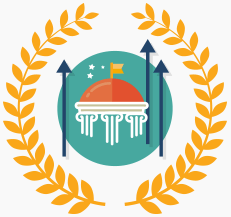
Educational Attainment
Educational attainment is the highest level of education completed by an individual. It can heavily contribute to the employment opportunities and overall earnings over a lifetime. Current stats show that 13% of Hispanic adults have received at least a bachelor's degree. 15% of Native Americans, 20% of African Americans, and 52% of Asian Americans have earned a bachelor's degree. Seeking out scholarships for minorities will help narrow the gap of those without a bachelor's degree, and obtain higher educational attainment levels.
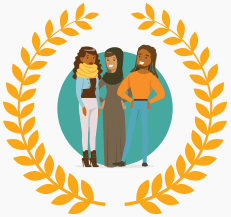
Breaking Colorblindness
By offering scholarship opportunities to minorities, more individuals are given a better chance at receiving a quality education alongside the majority. This is beneficial not only for college campuses but also for the workforce in the long run. Colorblindness gives more privilege to white people, and eliminating these scholarships for minorities will only make it worse. When people of different backgrounds and races are more equally represented, people are more likely to work as a team, share cultural experiences, and have hope that they can aspire to do whatever they want as long as they have the willpower and dedication.
How to Qualify for a Scholarship
There are many different components to qualifying for a scholarship. Of course, each award will have different requirements, but generally speaking, strong test scores and a solid GPA will help you get them. Let's take a look at both of these and some other areas that will help you earn scholarships:

GPA
Working towards receiving good grades in school will help you earn a solid GPA. GPA is a huge factor for most scholarship applications. In fact, many require that the applicant have at least a minimum GPA of 3.0 to qualify. Sometimes, a 2.0 may be acceptable. In order to keep qualifying for certain scholarships, students may be required to maintain that GPA throughout their college years as well. With that said, keeping up your grades don't stop in high school!
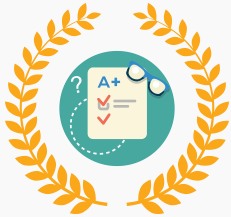
Test Scores
On top of GPA, you'll want to study for those standardized tests. Test scores alone won't deter you from getting scholarships, but scoring well on them certainly would benefit you. Depending on the scholarship you apply for, you may be asked to provide your test scores for the Pre-Scholastic Achievement Test (PSAT), Scholastic Achievement Test (SAT), or the American College Test (ACT). The SAT exam is most commonly used for evaluating college admissions these days. These standardized exams are designed to test each student's abilities in 5 areas including math, reading, writing, science, and language.
Looking to get a scholarship for graduate school? The GRE is a general test for those looking to pursue graduate education. Consider becoming familiar with the GMAT to prepare for a business school program and qualify for scholarships.
The best way to see if you qualify for a scholarship is to simply apply! Of course, you'll want to be selective and only apply to those that are actually relevant to you though. For example, if you're part of the LGBT community, you'll want to focus on finding scholarships geared toward gays/lesbians/bisexuals. By narrowing down your search, you can better budget your time and have a higher chance of actually receiving one or some of the scholarships you apply for.
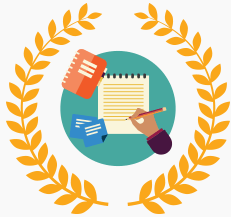
Essays
Depending on the scholarship you are applying for, you may be asked to write an essay to help judges get a better picture of who you are as a person and how you well you write. If requested for an essay, you'll be provided with a topic to write about. The topic may be about anything from opening up about your personal experience about something growing up, talking about an extracurricular activity and how that's shaped you, or sharing your college and career goals, for example.
Wondering what a good scholarship essay looks like? Take a look at some samples provided by The Office of Financial Aid and Scholarships at San Diego State University to get started!
While there is no exact recipe for a good essay, there are definitely ways to make yours stand out. Review some of these pointers before you start writing.
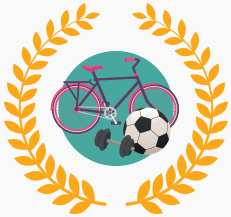
Extracurricular Activities
Engaging in extracurricular activities is a good way to show that you are involved in other things other than just academics. In fact, there are some scholarships out there that are offered only to people involved with certain extracurricular activities. Whether you're into charity work, sports, or any specific type of hobby, chances are there is an extracurricular activity out there for you.
If you can, try to incorporate one or two into your school schedule. Not only will it make you a more well-rounded student, it will also help increase your chances of scoring scholarships. Picking up an extracurricular activity may give you valuable life skills that you otherwise wouldn't be able to attain from just class work, such as teamwork, leadership, physical strength and endurance, competition, and building a community, to name a few.

Letters of Recommendation
Another great perk of being a stellar student is that chances are, your teachers and coaches only have wonderful things to say about you! Take advantage of this and ask them to provide letters of recommendations. This may boost your chance of getting a scholarship. Most scholarships these days may request you to provide anywhere from one to three letters of recommendations. This allows the judges to see a side of you that you may not have mentioned or revealed through test scores, extracurriculars, and essays.
You might be wondering, who should I get a letter of recommendation from? Ideally, you'll want to ask a teacher or coach who knows you pretty well not just on an academic level, but on a personal level as well. This way, they'll be able to say more genuine things about you and be passionate about "advertising" you so to speak. Additionally, these people should be relevant to your goals and have a pretty clear understanding of your college and career plans.
To get the best letter of recommendations, you'll want to give your selects plenty of time to write good ones. As you know, teachers are busy creating lesson plans, grading papers and exams, and much more. Coaches are busy training their students. It can be tough for them to set aside their schedule to come up with a letter of recommendation on the spot. As a result, the letter may not be as good as it can be because they wouldn't have enough time to truly reflect and think about what to write.
In addition to giving them plenty of time, you may want to provide a quick list of things you want your teacher or coach to touch upon. That way, they are sure not to miss anything important, and will have a basic framework of what they can expand on in their letter.
Scholarships by Minority
Not sure which scholarship is right for you? There are a plethora of scholarships available and the first step is finding ones that fit your characteristics and lifestyle. We have broken down a handy list of scholarships by minority. Whether you are an African American, Asian, Hispanic, Native American, gay/bisexual/transgender, or a woman, you'll benefit from checking it out below:
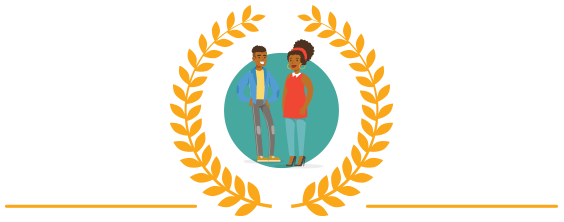
African American

Rice University Trustee Diversity Scholarship
If you've had diverse life experiences and have made contributions to diverse groups of people, then this scholarship is geared at you. The amount is $25,500 to $27,000.

Goldman Sachs Scholarship for Excellence
This scholarship provides up to $15,000 toward tuition and academic expenses, and an offer for a paid Goldman Sachs summer internship. This scholarship is part of Goldman Sachs diversity recruiting efforts.

Goldman Sachs MBA Fellowship
This is for blacks in their first year of business school. It was designed to help increase awareness of financial service careers for african americans. This fellowship awards $25,000 along with a summer associate salary.

William Randolph Hearst Foundation Endowed Scholarship
For current minority students at Savannah College of Art and Design. A GPA of at least 3.0 is required and at least 45 credit hours completed. The award is $16,150.

Rutgers University Diversity Advancement Scholarship
This is aimed at prospective graduate students of Rutgers University. It awards $15,000 to minority students who demonstrate exceptional abilities.

Scranton University Lynch Family Scholarship
Created in 2008 by John J. Lynch, this scholarship was created to support diversity at Scranton University. It is solely aimed at students who are African American.

American Bus Association Diversity Scholarship
The diversity scholarship from the ABA Foundation is geared at minority students in a field of study relevant to the transportation, travel, and/or tourism industry. Applicants must submit at 500 word essay on how they would make advancements in one of the above industries. The scholarship award is $5,000.

Jackie Robinson Foundation Scholarship
The Jackie Robinson Foundation awards scholarships of up to $28,000 over the course of 4 years to African Americans who show strong leadership potential. Applicants must show financial need as well to apply for this scholarship to any accredited 4-year university.

Gates Millennium Scholars
The average scholarship award is $12,785 and it is towards Pell Grant eligible students of color. Nearly one billion dollars in scholarships have been awarded since its inception in 2000. There are 1,000 scholars selected every year.

Box Diversity Scholarship
This awards one student $20,000, and four other students $4,000 each. It is aimed at underrepresented people with an interest in technology.

National Achievement Scholarship Program
The NMSC has awarded $108 million to more than 34,000 African American students since 1964. The average award is around $2,500.

American Meteorological Society Minority Scholarship
This scholarship awards a $6,000 stipend, split in half over the course of two years. Second year funding is dependent on successful completion of the first year.
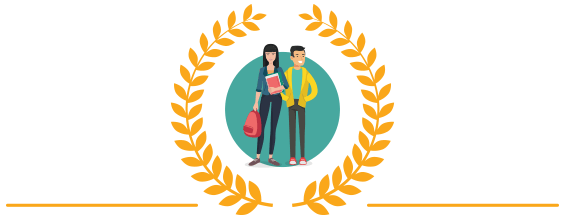
Asian

Asian & Pacific Islander American Scholarship
Here you will find several scholarship opportunities aimed at Asian Americans. Awards range from a one time amount of $2,500 up to $20,000 over the course of four years. Applicants must be in need of financial assistance.

Asian Pacific Fund
You'll find 13 scholarship programs for Asian graduate and undergraduate students. In 2016 this fund had given out almost $200,000 in scholarships to 76 students in need of financial assistance. Awards range from $500 up to $20,000.

Asian Pacific American Librarian Association Scholarship
This is a specific scholarship for Asian Americans pursuing a graduate degree in library or information science. The award is $1,000.

Asian American Journalists Association Scholarship
If you're an Asian American pursuing journalism, then you'll want to check out the available scholarships here. Awards range from $500 up to $5,000, with six scholarships to apply to.

Ching-Suei Su Scholarship
This scholarship awards $2,500 to an undergraduate student pursuing a major in Asian-American Studies, East Asian Cultures, Chinese Studies, Korean Literature and Culture, or Japanese Language and Literature.
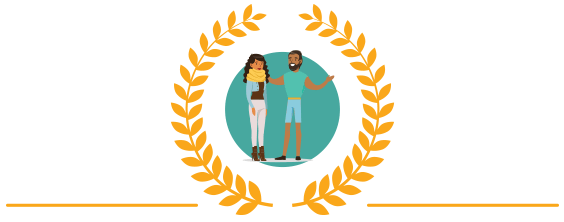
Native American

American Institute of American CPAs Fellowship for Minority Doctoral Students
This fellowship awards $12,000 to minority students pursuing a doctoral degree in accounting.

American bus Association Diversity Scholarship
American bus Association Diversity Scholarship - This scholarship awards $5,000 to a minority studying a degree related to transportation, tourism, or travel. Applicant must have a GPA of at least 3.0.

Library and Information Technology Association Minority Scholarship
Recipients of this scholarship will receive an award of $2,500. Applicants must be pursuing an education in the library and automation fields, and show a strong commitment to utilizing automated systems in libraries.

American Chemical Society
Students may receive awards up to $5,000 from this scholarship. It is only for underrepresented minority students who are studying or want to study fields related to chemistry.

The Bureau of Indian Education Grant Program
The BIE has created this program to help American Indian and Alaska Native students handle the financial burdens of obtaining a higher education. The awarded amount varies from year to year, but any amount goes a long way in working towards the goal of coming out of college with zero student debt.

Association of American Indian Affairs Scholarships
There are five undergraduate scholarships available here, but you can only apply to one of them to ensure others have a chance to earn one of the scholarships. Awards range from $1,000 up to $5,000.

Notah Begay III Scholarship
This scholarship began in 1999 and awards up to $1,300 every year to one or two recipients of Native American descent. You must be playing on a varsity level team sport and have a 3.0 GPA.
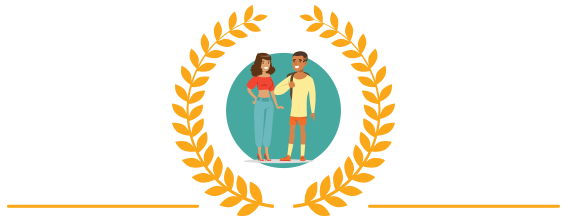
Hispanic

Albert W. Dent Graduate Student Scholarship
Twenty students will be awarded this scholarship each year, with the award amounting to $5,000. It is for minority students entering health care management graduate programs. Application time is usually the first few months of each year.

Actuarial Diversity Scholarship
If you are pursuing a career in the actuarial profession and are hispanic, then this scholarship is for you. You must have a GPA of at least 3.0, a minimum of ACT math score of 28, or SAT math score of 600. The award is $1,000 for freshman, $2,000 for sophomore, $3,000 for junior, and $4,000 for senior. Deadline is May 1st of each year.

Amerzcua Family Scholarship
If you are a student at the University of Texas El Paso, then you'll want to check out this scholarship. It awards $500 to hispanic students studying in a STEM field, and have a GPA of at least 3.0.

Ann Seki Memorial Scholarship
Chevron sponsors this scholarship, and it has been in existence since 2010. You must have a minimum GPA of 3.3, be of hispanic descent, and majoring in some type of engineering related to the oil industry. Awards vary yearly.

The D.Y.M.O.N. Scholarship
Hispanic students should apply to this scholarship, as it has a $1,500 award for its recipients. It is aimed primarily at inner city students to help them succeed at obtaining a higher education.

Davila/Trevino Memorial Scholarship
If you live in Texas and are hispanic then you could possibly be awarded $1,000 from this scholarship. You must have a minimum GPA of 3.0 and major in engineering at a university in Texas.

Leon Bradley Scholarship
If you are looking to become a teacher or go into school leadership roles, then check out this scholarship. It is for minorities who are pursuing their first teaching certification. It is limited to about a dozen states and Canadian provinces, so be sure to check if your home state or college state is included.

Paul Gaines Scholarship
$900 goes to the recipient of this scholarship. Established in 1999, it is aimed at hispanic and black students in the Massachusetts and Rhode Island area. It is also limited to majors in the teaching and counseling fields of study.

CUNY Becas Scholarship
You'll be awarded $6,330 if selected for this scholarship. You must go to CUNY to receive the scholarship, but you can apply for it before becoming a student there(i.e. If you're still in high school). You'll need to participate in monthly seminars, complete 200 hours of an internship at a nonprofit, and be continually involved with the events and activities at CUNY.
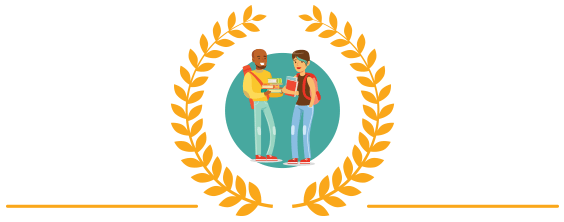
LGBT

Harry Bartel Memorial Scholarship
If you are a gay male student under the age of 23, then this scholarship is for you. The award is $500 and you must show you have a record of community service to be considered.

LGBT Scholarship at UCSD
LGBT students will be awarded $1,000 if accepted for this scholarship. You must be enrolled at University of California - San Diego and it is based on merit, financial need, and experiences that are of concern to the LGBT community.

Traub-Dicker Rainbow Scholarship
Awards range from $1,500 to $3,000 and applied directly to tuition costs. This scholarship was created by Peggy Traub and Phyllis dicker for LGBTQ women pursuing a college education. You just show academic achievement, community service, leadership, and a commitment to furthering LGBTQ causes.

Levin-Goffe Scholarship for LGBTQI Immigrants
This scholarship provides a total of $25,000 over the course of two years of schooling. You must have a GPA of at least 3.25 and be enrolled in an accredited nonprofit school in New York City.

Marx and Marshall Gay and Lesbian Scholarship
Another scholarship opportunity for LGBT students at UCSD. The award is $1,000 and you must have made an impactful contribution to the LGBT community to be considered for this scholarship.
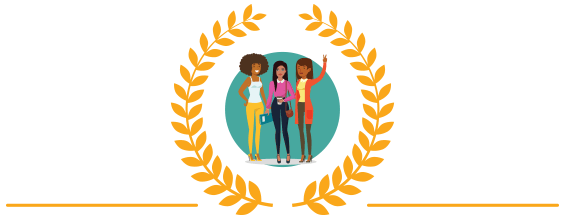
Women

NEWH Women Leaders Scholarship
If you are a female focusing on hospitality management, then you could receive this $5,000 scholarship. You must have a 3.0 GPA, and show financial need to be considered.

ISC Foundation Women's Cybersecurity Scholarship
$10,000 is up for grabs if you have a 3.2 GPA and studying to go into cyber security or information assurance. This scholarship is designed to help bring more women into cyber security sector.

1,000 Dreams Scholarship
Female students can apply to this scholarship for an award of $1,000. You must explain how you are in financial need of it, and how the scholarship would be used.

Red Thread Foundation Scholarship
Female students with an international background get preference for this scholarship. Applicants will be shortlisted for a phone interview. Those who are accepted for this scholarship will receive an award of $1,000.

Helga Henry Scholarship
Another scholarship opportunity for LGBT students at UCSD. The award is $1,000 and you must have made an impactful contribution to the LGBT community to be considered for this scholarship.

Zonta Women in Science Scholarship
Zonta International created this scholarship to encourage more women to go into science and technology fields. The award is for $1,000 and for any female student going into a STEM field. Many other scholarships for women can be found at Zonta International.

Society of Women Engineers Scholarship
Female engineering students can apply for this scholarship worth $10,000. Applicants must be already enrolled or accepted into a ABET-accredited engineering, computing, or technology degree program.

Adobe Research Women in Technology Scholarship
Adobe is committed to having a diverse workforce, and sees the value in having more women in the technology field. They are providing this scholarship of $10,000 to women studying computer science. It also comes with an Adobe Creative Cloud membership for a year, as well as an internship opportunity at Adobe.

UWF Elmira K. Beyer Scholarship
$11,000 could be yours if you are a woman in Jefferson County(Washington State) and enrolled at an accredited four-year college. This award is geared towards women who had begun college but were not able to finish it yet.

David Eaton Scholarship
This scholarship is geared towards women from a marginalized group. If you are female and looking to become a minister, then this scholarship would be a great one to apply to.
Other Forms of Financial Aid
Scholarships are a great way to help fund college, but it's not the only way. Minorities have other options to consider as well when it comes to getting money for school! Two popular options include grants and fellowships. Let's take a quick look at each and how they work.
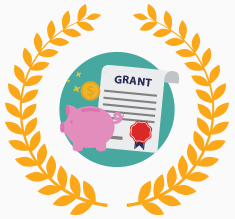
Grants
Some minorities may be eligible for certain grants. One of the most popular ones is the Pell Grant, which is designed to help low-income families. This grant does not have to be re-paid, so it works similarly to a scholarship in that way. Every year, the Pell Grant offers a different set amount. The maximum set amount for the 2017-2018 school year is $5,920.
Below are just some of the grants available to minorities today:
The Global Fund for Women promotes women's rights and provides grants to allow women to reach their full potential via education, and live free of violence and discrimination. Apply for the grant and learn more here!
Astraea Lesbian Foundation for Justice is an organization that works for racial, social, gender, and economic justice. Their biggest aim is to advance LGBTQI human rights around the world. With that said, if you are a student that feels you can relate to this, you may want to check out their available grants here.
Are you interested in becoming a teacher? The TEACH Grant is available to all students but minorities are strongly encouraged to apply if they want to enter into the teaching field after school. It provides grants of up to $4,000 a year to students who are completing or plan to finish coursework towards a career in teaching.
If you are a Hispanic student wanting to pursue a degree in either science, technology, engineering, or math, it may be worthwhile to check out the SHPE Foundation Scholarship. This foundation provides scholarships on a merit and need basis ranging anywhere from $1,000 to $5,000. Motivated Hispanic students interested in STEM fields are encouraged to apply.
The United Negro College Fund is geared toward African Americans pursuing higher education. UNCF believes that "a mind is a terrible thing to waste," which is why they have put their scholarship fund in place to help needy Black students achieve their career goals.
There are several grants available to Asians as well depending on what you are interested in studying and what ethnic background you are from. For example, the Asian-American Journalists Association is designed to help those interested in completing a degree in print and broadcast journalism. If you are a Vietnamese American student, the Vietnamese American Scholarship Foundation is worthy of looking into as it administers a plethora of scholarships and fellowships for Vietnamese Americans getting a college education. The list goes on, and each scholarship has different requirements. If you are an Asian American college student, you may find it beneficial to check out these scholarships.
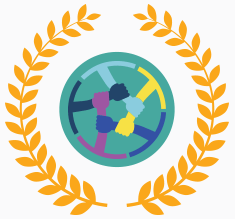
Fellowships
If you are pursuing higher level education, fellowships can definitely come in handy. Since graduate training can be even more costly than undergraduate studies, funds from fellowships can really help minorities afford college.
If you are pursuing graduate studies at Cornell University, the Provost Diversity Scholarship is available to students who are 1) of minority descent, 2) a single parent, or 3) a first generation college student.
Two fellowships are available via the National Gay and Lesbian Task Force if you are an LGBTQ student. Learn more and see how you can apply here.
If you are a minority pursuing doctoral studies, the AICPA Fellowship for Minority Doctoral Students is worth checking out. It ensures that students of diverse backgrounds are visible in college, by providing a program to increase the number of minority students who serve as role models and young people in the classroom. Review the eligibility requirements and learn how you can apply here.
Resources
Interested in learning more about scholarship opportunities for minority students and why these opportunities are so important for minorities? Get enlightened by checking out the below list of resources:
This article explains why scholarship opportunities are so important for minorities and how education for minorities help to diversify college campuses. More individuals of different backgrounds and color are able to graduate and contribute to the workforce after college as a result of these opportunities.
This piece briefly covers the different questions you should be sure to ask about financial aid and scholarship opportunities when visiting a college campus.
The myth that minorities get more scholarships than white students are debunked in this article in great detail.
This website goes over minority grants in more depth.
This is a handy list of minority fellowships worthy of checking out if you are looking to get some extra financial aid on top of scholarships.
Are you an LGBT student interested in a grant opportunity? Learn more about the available funds on this website.
This is a very valuable resource if you are interested in learning more about minority scholarships and the different ones available depending on your minority status.
Find useful information about scholarships and fellowships available for minority students here.
This article provides some interesting statistics about educational attainment among U.S. Latinos.
If you are a minority student with a passion for sports, you may be eligible to apply for a sports scholarship. This resource gives a handy directory of a variety of athletic scholarships available.

